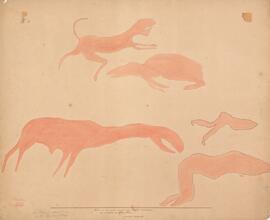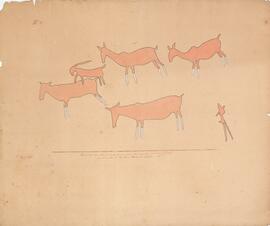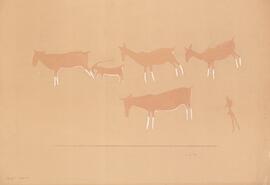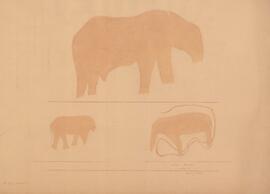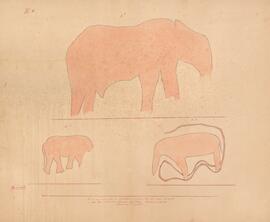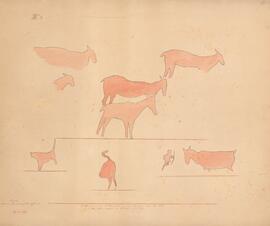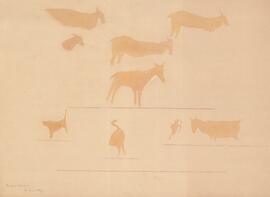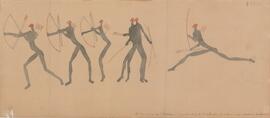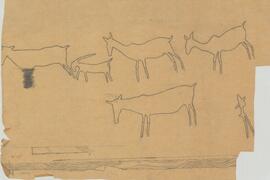Identificatie
referentie code
IZI LBP
Titel
Peringuey, Louis Albert
Datum(s)
Beschrijvingsniveau
Collectie
Omvang en medium
Collection of artifacts
Context
Naam van de archiefvormer
Naam van de archiefvormer
Biografie
archiefbewaarplaats
Geschiedenis van het archief
Directe bron van verwerving of overbrenging
Inhoud en structuur
Bereik en inhoud
Waardering, vernietiging en slectie
Aanvullingen
Ordeningstelsel
Voorwaarden voor toegang en gebruik
Voorwaarden voor raadpleging
Voorwaarden voor reproductie
Taal van het materiaal
- Engels
Schrift van het materiaal
- Latijn
Taal en schrift aantekeningen
Fysieke eigenschappen en technische eisen
Iziko Museums of Cape Town
Toegangen
Verwante materialen
Bestaan en verblifplaats van originelen
Bestaan en verblijfplaats van kopieën
Related units of description
Aantekeningen
Aantekening
Background of the Recorder:Louis Albert Peringuey (1855-1924)
Lois Albert Peringuey was born in 1855 in Bordeaux, France. He obtained a masters degree in Sciences in the 1870's before traveling through Senegal, Gambia and Madagascar. One of his main objectives during his travels was to collect plants and animals for museum exhibits. It was in 1879 that Peringuey immigrated to South Africa where he taught French at colleges in Cape Town. Pursuing his true vocation Peringuey took a volunteer position at the South African Museum in Cape Town in 1882. Here he was involved in the entomology department. His contributions to the field were invaluable and much of his work was published in scientific journals.
By 1884 Peringuey had become a permanent member of staff at the museum. Peringuey traveled to Algeria and France in 1885 on an assignment from the Cape government. By 1896 he was made the assistant director of the South African Museum, in this position he was able to explore his interest in anthropology and archaeology. A year after publishing his study 'Stone ages of South Africa' (1898), he made a startling discovery of prehistoric stone implements on the slopes of Pappegaisberg at Stellenbosch. Later, he found similar implements in Paarl and Malmesbury, which he dated to the Paleolithic period. When he announced his conclusions to the South African Philosophical Society, he gained international recognition.
In 1906 Peringuey was appointed Director of the South African Museum, a position that he held until his death in 1924. In his eighteen years as Director his interest in Rock Art flourished and he published several studies on the subject. Much of Peringuey's energy was dedicated to improving the museum's exhibits. His casts made from living San people, rock paintings and engravings, prehistoric stone implements and an extensive collection of skulls and implements were among his most impressive new exhibits.
It was also in 1906 that the doctorate in Natural Sciences was bestowed upon him by the University of the Cape of Good Hope. And in 1907 he was elected a member of the South African Association for the Advancement of Science.
When Peringuey died in 1924 he left behind him, an extraordinary legacy of scientific study realized in his many publications and exhibits and of preservation of cultural heritage materials.
Lois Albert Peringuey was born in 1855 in Bordeaux, France. He obtained a masters degree in Sciences in the 1870's before traveling through Senegal, Gambia and Madagascar. One of his main objectives during his travels was to collect plants and animals for museum exhibits. It was in 1879 that Peringuey immigrated to South Africa where he taught French at colleges in Cape Town. Pursuing his true vocation Peringuey took a volunteer position at the South African Museum in Cape Town in 1882. Here he was involved in the entomology department. His contributions to the field were invaluable and much of his work was published in scientific journals.
By 1884 Peringuey had become a permanent member of staff at the museum. Peringuey traveled to Algeria and France in 1885 on an assignment from the Cape government. By 1896 he was made the assistant director of the South African Museum, in this position he was able to explore his interest in anthropology and archaeology. A year after publishing his study 'Stone ages of South Africa' (1898), he made a startling discovery of prehistoric stone implements on the slopes of Pappegaisberg at Stellenbosch. Later, he found similar implements in Paarl and Malmesbury, which he dated to the Paleolithic period. When he announced his conclusions to the South African Philosophical Society, he gained international recognition.
In 1906 Peringuey was appointed Director of the South African Museum, a position that he held until his death in 1924. In his eighteen years as Director his interest in Rock Art flourished and he published several studies on the subject. Much of Peringuey's energy was dedicated to improving the museum's exhibits. His casts made from living San people, rock paintings and engravings, prehistoric stone implements and an extensive collection of skulls and implements were among his most impressive new exhibits.
It was also in 1906 that the doctorate in Natural Sciences was bestowed upon him by the University of the Cape of Good Hope. And in 1907 he was elected a member of the South African Association for the Advancement of Science.
When Peringuey died in 1924 he left behind him, an extraordinary legacy of scientific study realized in his many publications and exhibits and of preservation of cultural heritage materials.
Aantekening
Collection obtained from: Iziko Museums of Cape Town
Aantekening
Collection owner image: LBP.jpg
Alternative identifier(s)
Trefwoorden
Onderwerp trefwoord
Geografische trefwoorden
Naam ontsluitingsterm
Genre access points
Beschrijvingsbeheer
Identificatie van de beschrijving
Identificatiecode van de instelling
Toegepaste regels en/of conventies
Status
Niveau van detaillering
Gedeeltelijk

